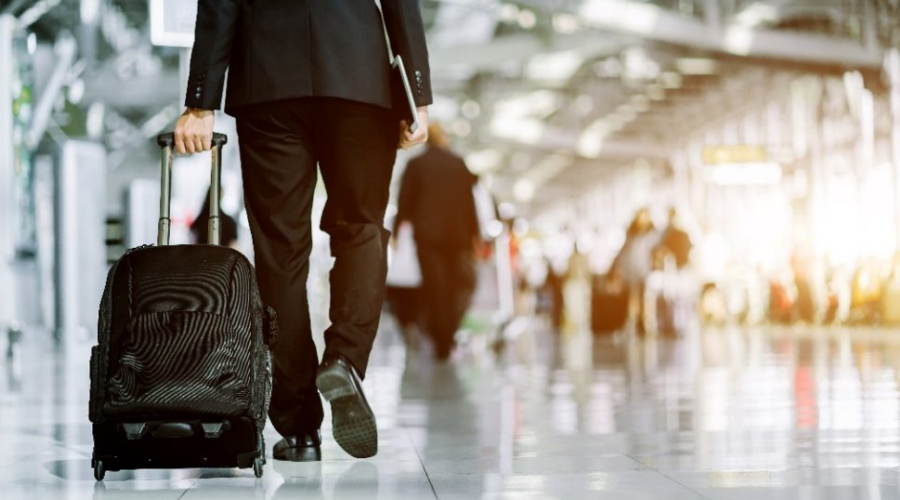Filing business travel expenses correctly can save you time, money, and stress at the end of every trip. Whether you’re an employee logging your travel costs or a business owner reviewing expense reporting, understanding how to complete a travel expense form accurately is essential. This step-by-step guide will walk you through everything — from organizing receipts to submitting your final report for reimbursement.
Why Tracking Business Travel Expenses Matters
When employees travel for work — attending conferences, client meetings, or project visits — their expenses add up fast. Without proper documentation, these costs can slip through the cracks and affect company budgets. Clear expense reporting ensures that every dollar spent is accounted for and reimbursed accurately.
Accurate reporting also helps maintain compliance with tax and company policies. According to the IRS guidelines for business travel deductions, businesses can only claim legitimate and well-documented expenses. A properly filled travel expense form makes this process smooth for both employees and employers.
Step 1: Gather All Receipts and Documentation
The first step in managing your business travel expenses is organization. Keep every receipt from your trip — hotels, meals, flights, taxis, or even small coffee purchases during business meetings. Many companies now use digital expense tools that let you upload pictures of receipts in real time.
If your company uses accounting software like QuickBooks Expense Tracking or similar platforms, you can categorize expenses automatically. The goal is to ensure that nothing gets lost and every charge has a corresponding receipt or proof of payment.
Step 2: Fill in Basic Trip Information
When you begin your travel expense form, start with the basic details — your name, department, purpose of the trip, and travel dates. This section helps your employer verify the reason and timeframe for your travel reimbursement request.
Include a brief explanation of your trip, such as “Client presentation in Chicago” or “Industry conference in San Francisco.” This description clarifies the business purpose behind the expenses and makes approval faster.
Step 3: List All Travel-Related Expenses
Now comes the detailed part of expense reporting. Every cost associated with your trip should be listed clearly on your travel expense form. These typically include:
- Transportation: Airfare, train tickets, taxi fares, or mileage reimbursement for car use.
- Accommodation: Hotel stays or temporary lodging expenses.
- Meals: Breakfast, lunch, and dinner during business days.
- Miscellaneous: Parking fees, tolls, or internet charges.
Use one line per item and provide the date, vendor, amount, and payment method. The clearer your breakdown, the easier it is for finance teams to review and approve the report.
For additional accuracy, refer to our internal guide on Expense Management Tips for Employees (example.com) to ensure every category matches your company’s policy.
Step 4: Apply Company Policies and Allowances
Before submitting your business travel expenses, check your company’s per diem rates and reimbursement limits. Some organizations have fixed daily allowances for meals or accommodations, while others reimburse actual costs.
Using company-approved guidelines avoids overclaiming and reduces back-and-forth with accounting teams. If you’re unsure about your company’s specific policy, check the employee handbook or contact HR for clarification.
You can also compare standard rates from the GSA Per Diem Rates to see how government-approved expense limits apply to your travel area.
Step 5: Calculate Mileage and Transportation Costs
If you use your personal vehicle for work travel, you may be eligible for mileage reimbursement. Include the start and end odometer readings, total miles driven, and applicable mileage rate.
The IRS mileage rate for business use is updated annually, so always use the current rate when calculating your reimbursement. Be sure to list tolls and parking separately from mileage to keep your form accurate.
Step 6: Review for Accuracy and Attach Documentation
Once all information is entered, review your travel expense form for any missing data or errors. Check for:
- Matching totals between receipts and the listed amounts
- Proper categorization of each expense
- Correct travel dates and trip purpose
Attach scanned or photographed copies of your receipts. Digital submission systems often allow you to upload files directly to your expense report. If your company uses a platform like Expensify Expense Management, make sure your receipts are properly tagged before final submission.
Step 7: Submit and Track Approval
After completing all fields and attaching the necessary proof, submit your form through your company’s designated portal or directly to the accounting department. Most systems allow tracking so you can monitor the approval process and payment timeline.
Submitting on time ensures you get reimbursed promptly and helps your organization maintain accurate financial records. Late submissions can cause unnecessary delays or even rejection of certain claims.
Step 8: Keep a Copy for Your Records
Always retain a digital or printed copy of your business travel expenses report. Keeping personal records helps in case of audits, reimbursement disputes, or tax deductions. This small step can save you headaches months later.
Best Practices for Accurate Expense Reporting
1. Record Expenses Daily
Instead of waiting until the end of your trip, record your expenses each day. It’s easy to forget small costs like tips or parking receipts when traveling frequently.
2. Use Expense Tracking Apps
Modern tools simplify expense reporting. Mobile apps like Zoho Expense allow you to capture receipts, log mileage, and submit reports in real time. This improves accuracy and saves hours of manual entry.
3. Follow Reimbursement Deadlines
Most companies set deadlines for expense submissions — usually within 30 days of travel completion. Submitting promptly helps maintain cash flow and ensures compliance with accounting policies.
4. Separate Personal and Business Expenses
Never mix personal purchases with business travel expenses. Use a company card or maintain clear records when using your own funds. Clean separation simplifies both reimbursement and tax reporting later.
5. Stay Consistent with Expense Categories
Using consistent categories (transportation, meals, lodging, etc.) keeps your reports uniform and professional. It also makes budgeting and audits much easier for your finance department.
Conclusion
Filing business travel expenses doesn’t have to be complicated. With a clear process and a reliable travel expense form, you can save time and reduce errors. Organized expense management benefits both employees and employers — ensuring transparency, compliance, and timely reimbursement.
By following these step-by-step guidelines and using trusted digital tools, you can make expense reporting efficient and stress-free. For more insights on professional business management, check out our internal post on Smart Budgeting for Small Businesses (example.com).







